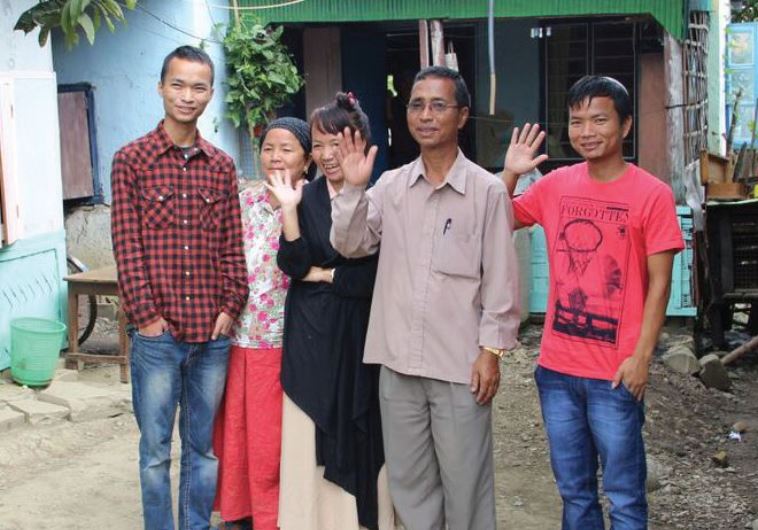A Bnei Menashe lesson: What Rosh Hashana and making aliya have in common
The Bnei Menashe never forgot who they are or where they came from – or to where they would one day return.
 Benji Tungnung poses with his family in his hometown of Manipur in India prior to making aliya to Israel(photo credit: MICHAEL FREUND)
Benji Tungnung poses with his family in his hometown of Manipur in India prior to making aliya to Israel(photo credit: MICHAEL FREUND)